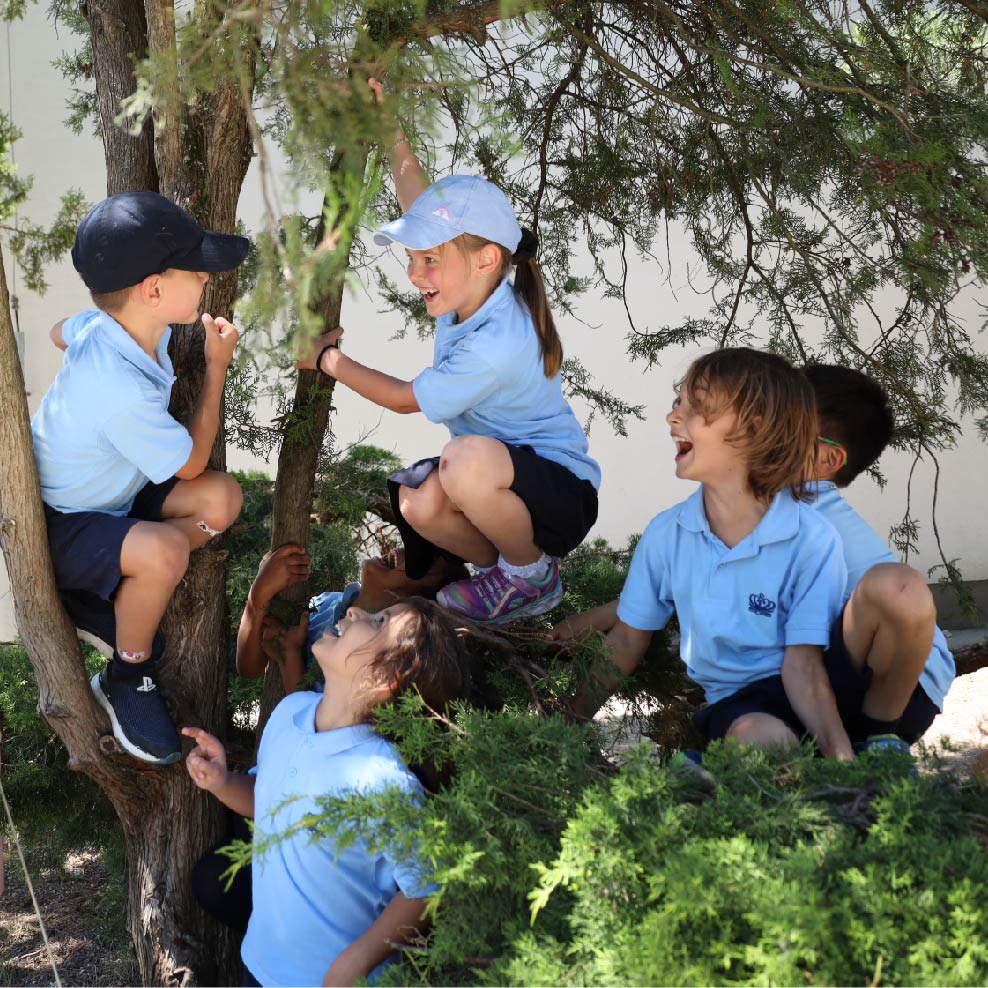
“They are just playing,” - four of the most disliked words for an Early Years practitioner. The world of play and learning are intertwined. When playing children develop language, emotional, creative, social and cognitive skills in a safe and risk-free environment. At the British International School Bratislava, our play-based curriculum enables children to grow holistically whilst fostering literacy and numeracy skills.
Through play, children are able to express their emotions, feelings and opinions, allowing them to stretch their minds as well as their muscles. Alongside this, play gives children the opportunity to experiment, imagine and work together in groups. Consider play and learning like a science lecture and science lab. The science lecture is the learning that is taking place and the science lab is the play where the experimentation and connections are made.
As children grow, they move through different stages of play, increasing the amount of social interaction as they develop. Play starts as a baby, where experimentation of waving and kicking begins. Children then begin solitary play, developing organisational skills such as stacking and building.
Following this, onlooker play starts as children watch and learn about social interaction, followed by parallel play when children play alongside each other but without engaging. The final two stages of play involve higher levels of social interaction. Associative play is where children use the skills learnt through observation to interact together, but often still have their own ideas. Cooperative play is when the children are working towards a common goal, sharing resources and are fully engaged with others.Within play, children partake in different types of play which refers to the specific activity the children are doing. Children often use objects to represent something different, such as a box being a castle, this is known as symbolic play. Sociodramatic play is when a child takes on a different role, for example being a superhero or a pilot.
Using the five senses to explore and play is known as functional play, and this is often turned into constructive play once a child becomes more familiar with a resource or material. During constructive play, children use the resource or material as part of their play, for example manipulating playdough to make it into spaghetti for their restaurant. The final type of play is game play, which is more structured and usually requires following rules to reach a specific goal. All stages of play are important for growth and development and children progress naturally through them, whereas they tend to add and integrate types of play, rather than stop one type and start another. You might see children using a cardboard box as a castle, whilst they are taking on the role of a king or queen living in the castle. As a young child, this play is usually on their own, as children get older they will engage in the same integrated types of play with their peers. Play is important for children of all ages, not just young children. Throughout childhood being allowed to play gives children the opportunity to try new things, be creative and be happy in an environment where there is no wrong. Play allows us to try again and do things differently – a key life skill.As adults, we can facilitate play by providing the time, space and resources that children need. Providing buckets, fabric, building resources or similar will all help to inspire play and ignite a child’s imagination.
It is key to value the importance of play, observing and watching what is happening, and joining in when invited by the child. This allows the play to flow and children to be free to explore their ideas without interruption. Ensuring the environment is safe but challenging, enables children to extend their learning and development. Adults need to be flexible and adapt to the child’s thinking, giving the child the autonomy to make decisions, problem-solve and be creative without the fear of getting it wrong. The most important thing to remember about play is that learning can be fun. When your child asks, “Can I go and play now?” remember they are not just playing, they are learning and maybe you can go and learn with them too!
Rose Winter is Early Years Phase Leader at the British International School Bratislava.